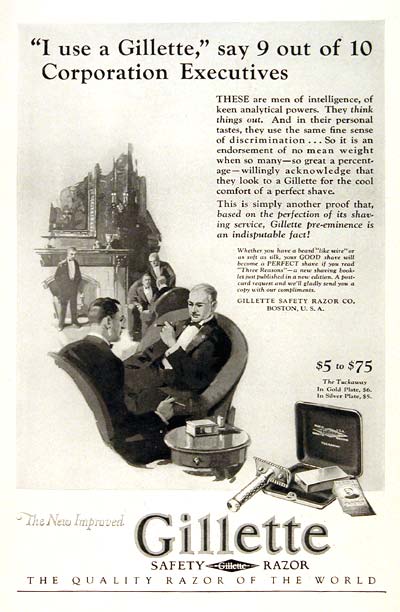1962 Gillette Razor Print Ad
Updated on

This Gillette ad doesn’t sell blades—it sells belonging. The headline claims “9 out of 10 corporation executives use a Gillette,” instantly framing the razor as a badge of success.
Marketing analysis
Your eyes go straight to the confident, well-dressed men, then slide down to the razor and logo. The ad makes you picture yourself as one of those powerful guys long before you read a word.
Why it works
- Borrowed authority from respected “executives”
- Faces and power cues trigger aspiration
- Product placed right along the visual path
- Taps into social climbing instincts
Examples
- Apple’s “Shot on iPhone” = creator status
- Rolex ties to achievers and adventurers
- Peloton riders = elite fitness tribe
Analyzed by Swipebot
Loading analysis...